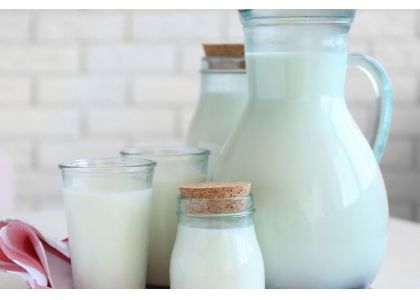
Nearly 70% of dairy companies maintain operations in Ukraine, as the industry managed to overcome disruptions of the first weeks of the Russian invasion.
“At the beginning of the Russian invasion of Ukraine, some milk producers and processors were forced to temporarily suspend the operation or scale down production due to logistical problems,” the press service of the Committee for Agrarian and Land Policy of the Verkhovna Rada said in a statement on 9 May, adding that Ukraine even resumed export supplies.
In April of 2022, Ukraine exported 5,630 tonnes of dairy products, 21% down compared to April of 2021, the official government data indicated. The Russian invasion has also hampered dairy imports. In April of 2022, the country imported 3,326 tonnes of dairy products, 62% less than in the same period of the previous year.
The share of dairy companies that halted operation dropped to 17% compared to 32% in the first weeks of the Russian invasion, the press service added. To some extent, this is associated with the end of the fights in the liberated northern regions. Currently, dairy companies resume operations in Kyiv, Sumy, and Chernihiv regions from where Russian troops retreated last month.
The largest dairy companies in Ukraine are Terra Food, Milk Alliance, and Danone Ukraine. Terra Food said in a statement that its production capacities have not been closed “even for a single day”, and that all employees were working “between sounds of the air raid alert”. The company also said that it changed its product range, focusing on the production with long shelf life.
In 2022, milk production in Ukraine is expected to drop by 13-16%, compared to the previous year, the Ukraine union of dairy companies reported.
“It is unlikely that with the current development of the military situation, the drop in raw milk production will exceed 17%,” the union of dairy companies said. “Such a decrease will not lead to a critical reduction in the supply of dairy products on the domestic market, since the due to the migration factor the domestic consumption decreased by 18-20%.”
“For the dairy industry, the first days were also a shock: several international companies closed their milk processing plants, established logistics schemes for the delivery of raw milk were disrupted, and [dairy] producers had nowhere to source milk,” the union said.